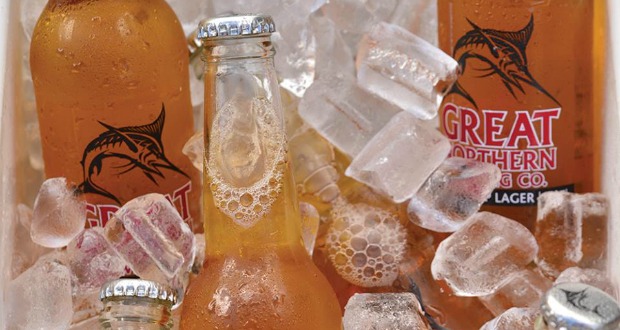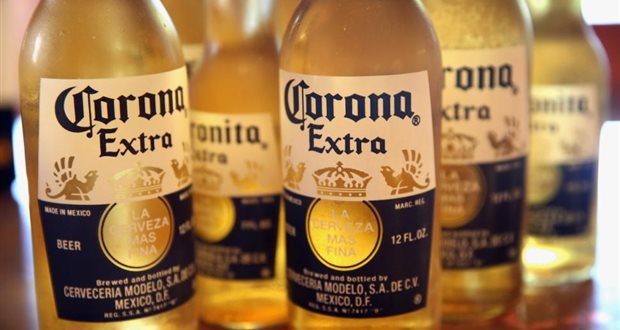AB InBev has announced it wants to grow the percentage of its sales that come from lower or no-alcohol beer to 20% by 2025.
And it’s revealed that Australia is one of six countries that’s already hit the target, along with China, Chile, Ecuador, Colombia, Panama and Honduras.
In 2018, the company launched 12 new no- and low-alcohol beers globally, with Carlton Zero called out as one of the big success stories.
In December, a spokesman for CUB confirmed Carlton Zero “has been one of the most successful new product launches we’ve ever had”.
According to market research company IRI, monthly sales of non-alcoholic beer in bottle shops increased up to 10-fold in the lead up to Christmas, following Carlton Zero’s launch.
Big profit potential in low and no
More than one in four beers drunk globally are brewed by AB InBev, with 8% of its worldwide beer sales by volume coming from beers with lower or no alcohol.
Non-alcoholic brews are the fastest-growing segment in the beer industry. While overall beer sales are stagnating, non-alcoholic-beer sales have grown by 3.9% on average for the past five years according to The Wall Street Journal.
AB InBev CEO Carlos Brito told investors in a call last week that low- and no-alcohol beer are a crucial global trend.
His announcement followed the company releasing its FY18 results, which saw revenue growth of 4.8% for FY18 and a 0.3% increase in volumes.
Australia grew revenue by low single digits, which the company said was “despite lower volumes due to increased promotional activity by competitors and a softer industry performance amidst declining consumer confidence”.

“Great Northern remains a key engine of growth, with continued double digit growth of both Original and Super
Crisp variants,” the company added. “Our craft acquisitions continue to grow in strength with double digit volume growth. In 4Q18, we further strengthened our NABLAB portfolio with the launch of our first non-alcohol beer, Carlton Zero.”
Brito said current moderation and health and wellness trends had led the company to provide consumers with high-quality no- and low-alcohol beers, which can play an important role in reducing harmful consumption.
“A key to explaining this piece of our portfolio’s innovation to ensure that we have a robust portfolio to meet different consumer needs,” he said. :As such we launched 12 new products this year resulting in 76 brands globally that qualify as no- and low-alcohol.
“What makes the segment even more exciting is that this brand is often command a premium price point and the margins are typically higher since excise taxes tend to be lower.
“And in terms of no-and-low alcohol beers, we said for many years now that we see a big opportunity because when you look at health and wellness and when you look at how eclectic beer is, beer can go all the way to zero-zero.”
Brito added that Budweiser 00 was currently being tested in some US markets and had tested “very well” in Canada.
The success stories in the full-strength market
As for its regular strength beers, Brito said Budweiser, Stella Artois, and Corona continued to lead growth for AB InBev and now represent more than 20% of total company revenue.
“In 2018 they grew revenue by 9% and 13.1% outside of their home markets where they typically command a premium price point. Budweiser had an outstanding year grew revenue by 10% outside of the US its home country. Much of the success is driven by our biggest and most successful commercial container ever during the World Cup where we’ll use our global sponsorship to elevate the brand and introduced it in many new markets.
“Budweiser role in our premium portfolios will offer consumers a trade-off from core beer especially in early-stage maturity markets. It’s a high-energy social occasions and it’s a flagship premium brand in the boys space.
“Stella to also delivered solid performance with revenue growing 52% this year, the growth was driven by a broad group of markets as the brand experience double-digit revenue growth in more than 25 countries. Stella Artois one of the brands in our portfolio with the richest history with the brewing heritage in its home country of Belgium dating back to 1366 and has an important role to play in our portfolio by owning the meal occasion.

“Corona continues to deliver phenomenal growth this year with global revenue growth of 17.6% and up 28.5% outside its home country of Mexico. This growth was led by China, Colombia, Argentina and Western Europe as well of a very strong performance within Mexico. Corona is our most premium global brand and has a very clear role to play in a portfolio for coed social occasions. Corona currently has a market share of 3% or higher in just three countries where we own the brand. With the brand growing double-digit globally we believe it’s still far from reaching its full potential.”